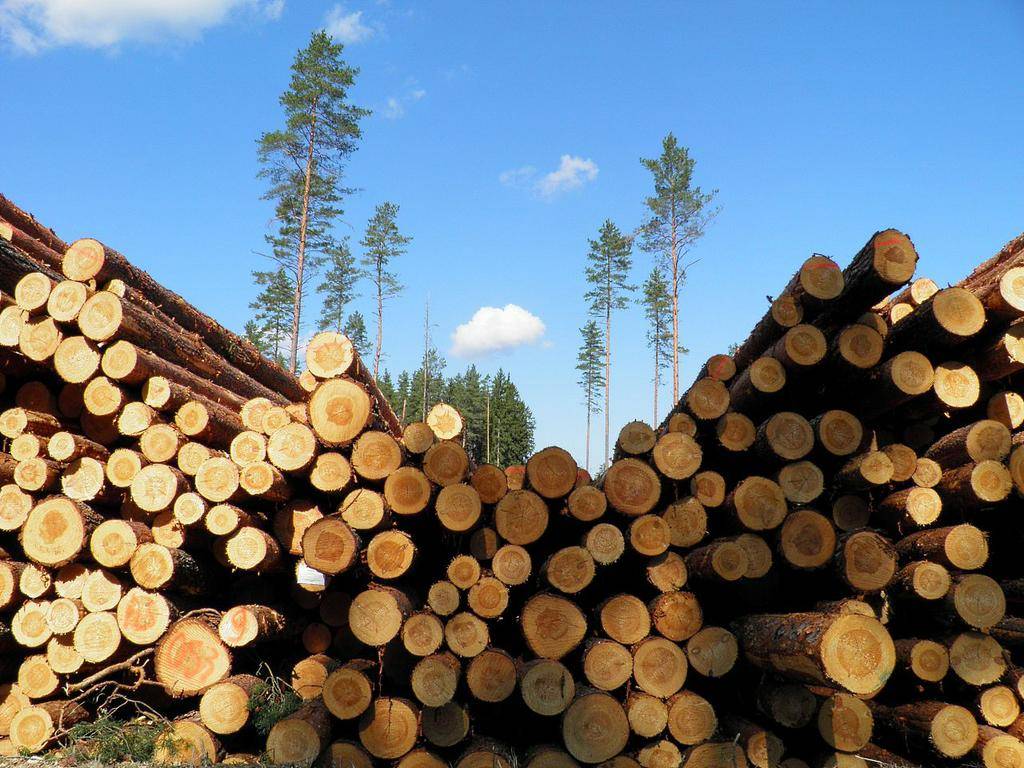The Chairman of the Federation Council proposed to create a joint working group with the state Duma to change the legislation, amend the Forest code to stop illegal logging
During the 450th meeting, the Federation Council considered the issue of”strengthening control over the turnover of timber and combating its illegal harvesting”.
According to the press service of the FC, the Chairman of the Federation Council Valentina Matvienko assured that parliamentarians will return to the topic of “black loggers”every six months. She suggested sending the Resolution on counteraction to illegal turnover of wood developed by the upper chamber to the Deputy Chairman of the Government of the Russian Federation Alexey Gordeev and expressed hope that within a month the measures offered by senators will be considered.
The head of the Federation Council also proposed to create a joint working group with the state Duma to change the legislation, amend the Forest code in order to stop illegal logging.
During the discussion, the Deputy Chairman of the Federation Council Committee on agrarian and food policy and nature management Vladimir Lebedev, Deputy Minister of natural resources and ecology of the Russian Federation – head of Federal forestry Agency Ivan Valentine, first Deputy head of the Federal customs service Ruslan Davydov and representative of the Prosecutor General of the Russian Federation Yevgeny Nadyrshin.
Following the discussion, the senators adopted the draft resolution of the chamber as a basis. The document was presented by the Chairman of the SF Committee on agrarian and food policy and environmental management Alexey Mayorov.
In the resolution of SF it is noted that the national forest legislation of the Russian Federation is based on the principles of sustainable forest management, forest conservation, including through their protection, protection, reproduction, afforestation. Increasing the long-term competitiveness of the forest industry and increasing the contribution of the forest sector to the socio-economic development of Russia are among the priorities of state policy.
According to the authors of the document, currently in the world is increasing activity in the field of combating illegal logging and illegal trafficking of wood, which led to a significant increase in competition in foreign markets for timber products.
Senators point out that by results of public Prosecutor’s checks, despite the measures taken by authorized Federal and regional public authorities, the state of legality in the sphere of preparation and realization of wood remains unsatisfactory.
During the consideration of the problems of illegal forest management in the framework of the all-Russian forest forum, “round tables”, as well as regional meetings (Chita, Khabarovsk, Barnaul), the SF Committee on agrarian and food policy and environmental management noted that the most widespread illegal logging of forest plantations received during the sanitary and recreational activities, including cutting of dead and damaged forest plantations-7.5 million cubic meters, the release of wood necessary to meet the needs of citizens – 5-6 million cubic meters. The volume of illegal logging of forest plantations carried out for the purpose of obtaining illegal income does not exceed 4-5 million cubic meters. Thus, the total volume of illegal forest use in the Russian Federation is estimated at 16-18 million cubic meters or 8-10 percent of legal forest use.
The Resolution emphasizes that the study of the causes and conditions of illegal forest use and illegal behavior of persons who produce illegal logging of forest plantations has revealed a number of factors related to the low standard of living of the rural population in depressed economic development areas. Ensuring access of citizens living in rural areas to forest resources, the creation of additional jobs in forestry should become priority areas of a state policy aimed at combating illegal logging of forest plantations.

According to the document, certain provisions of the forest legislation allow for the harvesting of wood in excess of the established volumes, as well as the growth of exploited forest plantations.
The senators state that the volume of illegal forest use exceeds the national average in those regions of the Russian Federation where the state control over the preservation of forests is weakened. Currently, the number of forest protection officers is two times lower than the normative level established by the Ministry of natural resources and environment of the Russian Federation, and five times lower than the level established before the forestry reforms in 2004-2008.
In order to monitor the origin and timber turnover in 2014 was established the unified state automated information system of accounting of wood and transactions with it (Lasegue). With its help, it was possible to make a comprehensive accounting of wood supplied by forest users to the commodity markets. Declaration of sales of roundwood has opened wide opportunities in the field of control over compliance with tax legislation, which allowed to withdraw thousands of organizations and entrepreneurs engaged in timber processing from the shadow sector of the economy.
The document notes that the operation of Lesego has identified a number of significant flaws. Currently, there is no possibility of interaction between the information systems of the Federal customs service and Lesegais using a single system of interdepartmental electronic interaction, as well as mechanisms for tracking the volume of wood at the time of harvesting and the volume of wood specified in the foreign trade contract. In Lesigues is no information about the transport of wood, which leads to the inability to control volumes of timber from the logging site to the place of consumption.
 Timber industry research & analytics
Timber industry research & analytics 